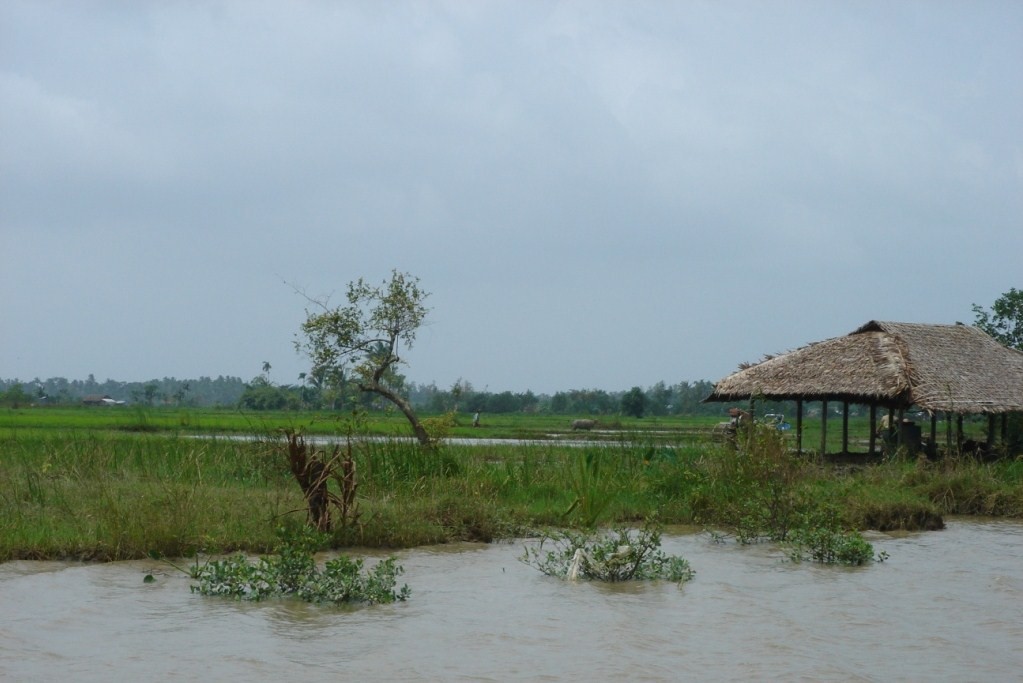Cyclone Nargis devastated the Ayeyarwady and Yangon divisions in May 2008, killing at least 140,000 and affecting 2.4 million. More than 780,000ha of paddy fields were submerged and 707,500MT of stored paddy and milled rice destroyed.
Efforts are under way to restore normality and livelihoods in the divisions, where agriculture is the mainstay, but the repair and upgrading of coastal embankments is being overlooked, said Shin Imai, the FAO's representative in Myanmar.
If another major storm hits, the damaged embankments will fail to prevent floods and storm surges in low-lying areas, especially in the coastal Ayeyarwady delta, he said.
"If a cyclone comes in, it will hit the newly built infrastructure and houses. Everything will be gone. So there is a big fear now," Imai told IRIN in an interview.
Neglected
The coastal embankments in the Ayeyarwady division were built in the 1970s and were already in a state of neglect before many were heavily damaged by Cyclone Nargis. They encompass 162,500ha of cropland, providing protection against flooding and saline intrusion during the monsoon season.
Some 1,000km of embankments need rehabilitating at a cost of US$100 million, according to government and FAO estimates. So far, only the Japanese government has put money towards them.
|
Photo: Courtesy FAO Myanmar  |
| Some 1,000km of embankments are in need of rehabilitation |
However, a lack of funds and heavy machinery means they are attempting to temporarily shore up embankments in some areas to the height of 2.4m only, said Imai.
"They want to quickly protect as many areas as possible, so they are digging and putting soil [on them]," he said. "It's only temporary, but it will help protect livelihoods."
Imai said international donors were probably skittish because of the scale of the work required, while sanctions also deterred funding for recovery efforts.
"Because of sanctions, it looks difficult to fund because this somehow looks like development assistance," he said.
"My point is that [we talk] about humanitarian aid but what does humanitarian aid mean? Fundamentally ... humanitarian aid has to save lives. If the embankments are not rehabilitated, how many people will be in trouble?"
Crop yields affected
Damaged or inadequately built-up embankments in the Ayeyarwady delta, the nation's rice bowl, mean sea water is intruding into fields at high tide, affecting crop yields, Imai said.
"When high tide comes, the embankment and the tide area are almost at the same height," he said.
In affected delta areas, rice production in 2009 was down by more than 50 percent compared with pre-Nargis levels, with the situation exacerbated by a rat infestation that is destroying crops, he said.
In Myanmar, productivity is measured in baskets of 20kg of rice each.
"It is happening already. That's why productivity is very low now. It's now 30 baskets [of rice] per hectare. It's normally 70 or 80 baskets," said Imai.
ey/ds/mw
This article was produced by IRIN News while it was part of the United Nations Office for the Coordination of Humanitarian Affairs. Please send queries on copyright or liability to the UN. For more information: https://shop.un.org/rights-permissions
